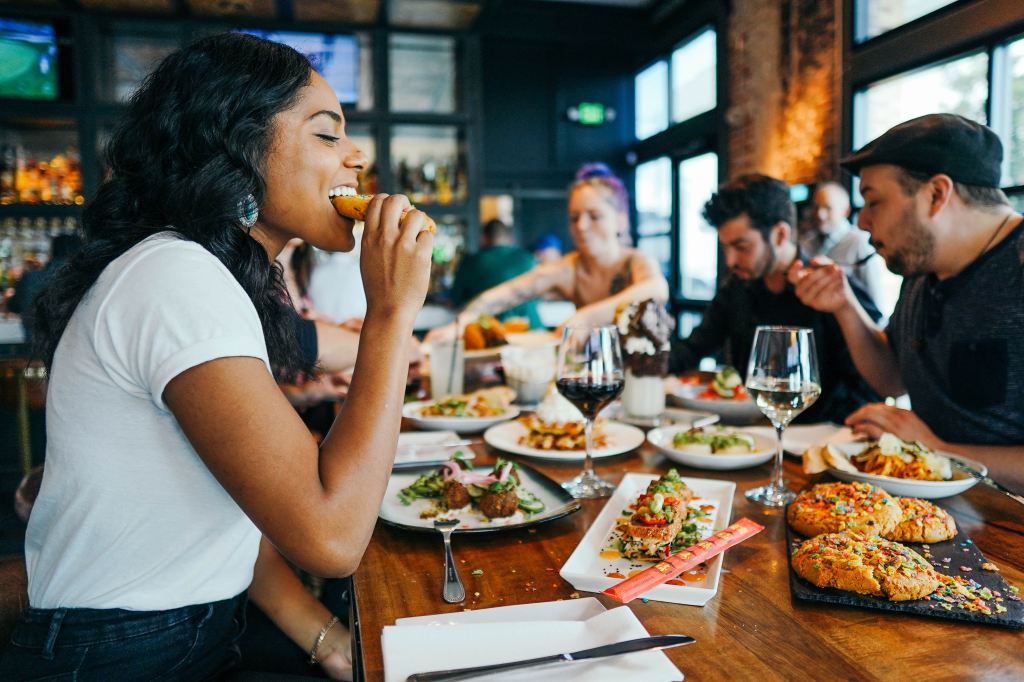By Donna Nixon (Follow us on LinkedIn)
At the height of the pandemic, I moved from vegetarian to vegan. It was easy then. The isolation and the internet gave me the space to try new and interesting ways to prepare delicious food. But 2023 has brought a full return to work, social, and travel activities, which have been challenging. Vegans generally avoid foods with meat, seafood, eggs, milk, butter, and food processed with any animal products. For example, many strict vegans do not eat commercial white sugar, which is generally processed using animal bone char.

I recognize that I am privileged to have the option of veganism. But it is a choice I am committed to for my health, the health of this planet and the awesome variety of life it holds in a delicate balance. I don’t evangelize. But I also don’t shy away from conversations about it. I’m a librarian, after all, and I love to help educate people. Most people’s favorite question is, “How do you get your protein?” Many who have a vague knowledge of veganism assume I must take some kind of protein supplement powder. That assumption is born of the myth that vegan foods have inadequate protein, because many (but not all) plant foods have varying subsets of essential amino acids, while meat often contains the full array. FYI, my favorite legumes, chickpeas (think hummus & falafel), also have a full array of amino acids, as do quinoa, buckwheat, soy, and a peanut butter sandwich on whole wheat! A varied diet of whole plant foods including beans, nuts, or seeds will also generally garner more than enough of all the essential amino acids even if you don’t eat the foods I mentioned above. Of course, none of the folks questioning my protein intake mention the numerous well-documented deficiencies in the Standard American Diet that most of us eat.
Event hosts can be overwhelmed with the wide landscape of restrictive diets that guests may have, whether it is gluten-free, nut-free, vegetarian, vegan, or something else. I try to make it easy for both my hosts and me by bringing my own food. But this can be fraught. Many hosts take pride in providing for their guests and take afront if you refuse to eat the food they prepare. Gatherings at restaurants, luncheons, or holiday parties, where brown bagging is prohibited or frowned upon are even more difficult. They may or may not have a vegan option at the event. I live in North Carolina where the motto seems to be, “The more pork, the better.” Vegetables and soups may be flavored with chicken broth or pork. So, I can either eat before I go, or chance going for hours without food, risking a blood sugar drop that triggers irritability and fatigue.
When someone tells me or a menu states that an item is vegan, I need to trust that is true. I’ve learned to dig deeper. Some people don’t know the full array of what vegans don’t eat. So, they will offer a veggie burger on a bun made with milk, eggs, or butter. I’ve even had people offer me gluten-free food, thinking that somehow equates to vegan. And often, when they get it right, I am offered bland salads with unappealing dressing.
As a foodie, I want every single meal to be delicious. I also want every meal to be low stress, for me and the people around me. I love eating with friends and family. I am fortunate that my family has taken my eating habits in stride. They don’t mind at all that I make my own food and that I am not interested in theirs. Sometimes they even try (and usually like) my food. My dilemma is navigating the rest of the world and getting them to accept that it is okay (desirable) to not try to make special arrangements for me except to clear a place for whatever I bring myself. I know we assume that people need to be lured to gatherings with food and libations. But just know for me the big draw is you.
————————————————————————————–—-————————–—-
Notes Between Us (NBU) is a blog about conversations and topics of interest to the writers. The writers are expressing their personal opinions solely. The essays represent their personal beliefs and not those of their workplaces or any organization they are associated with.
